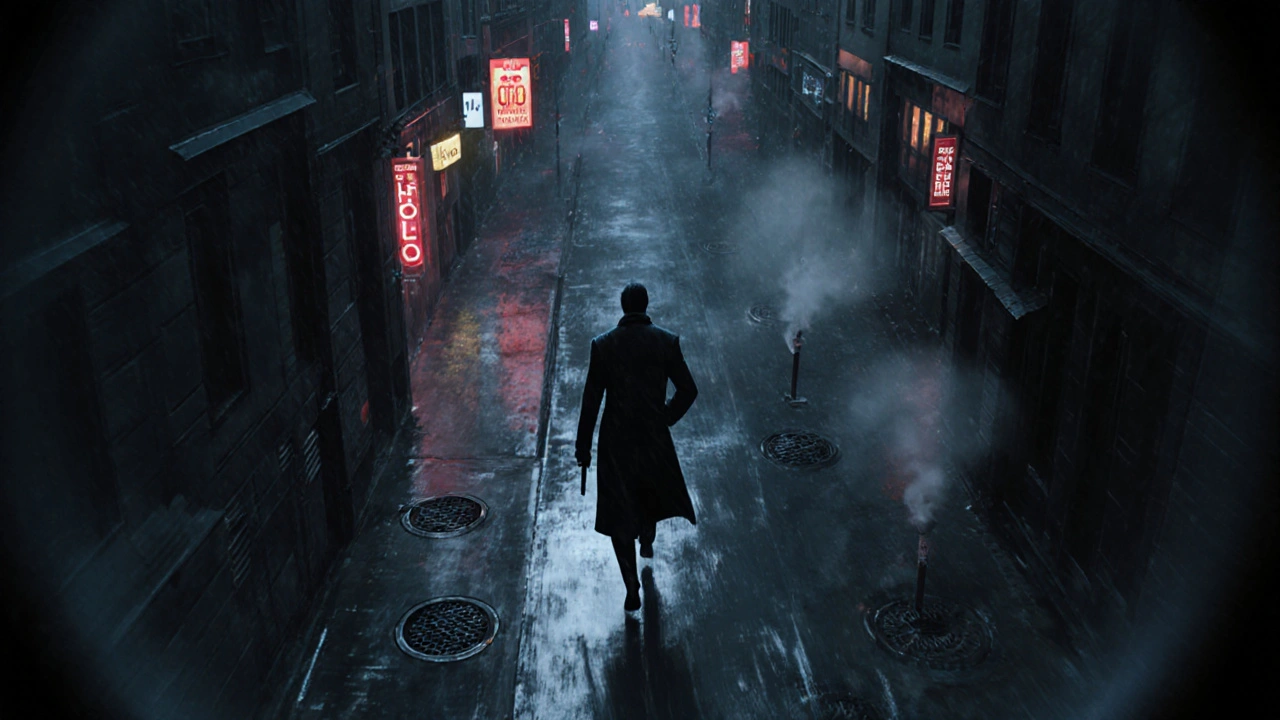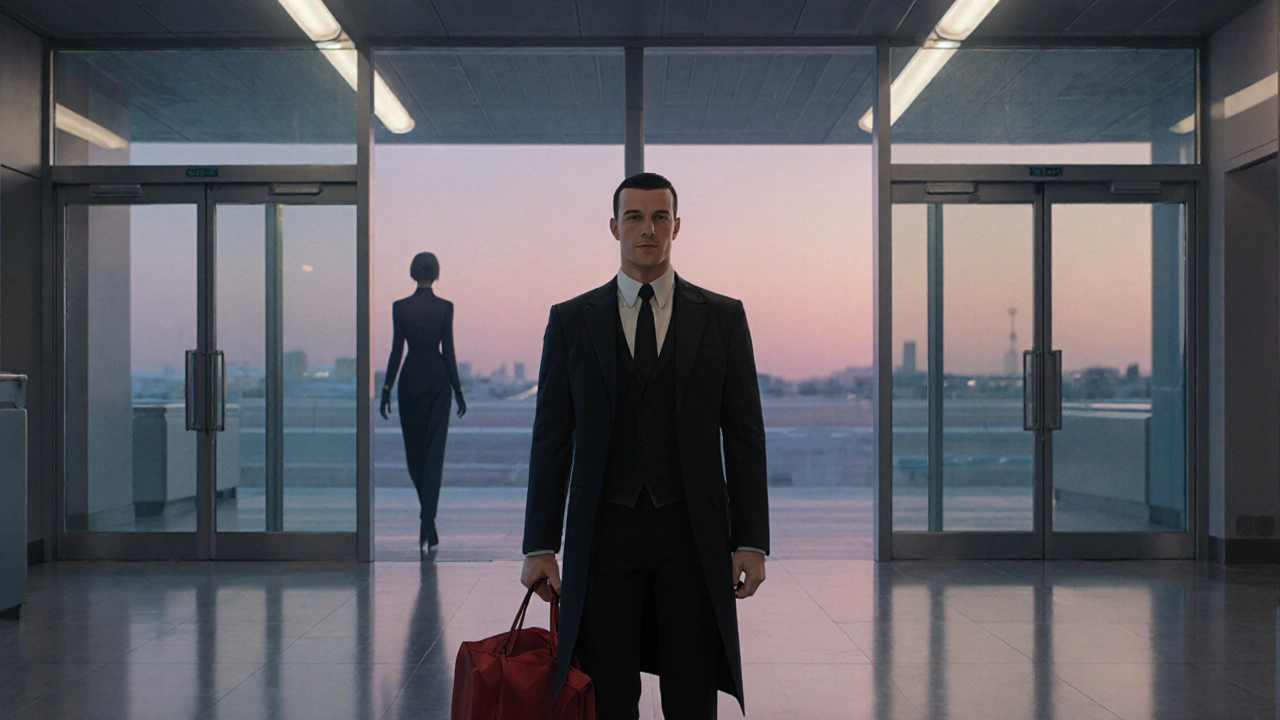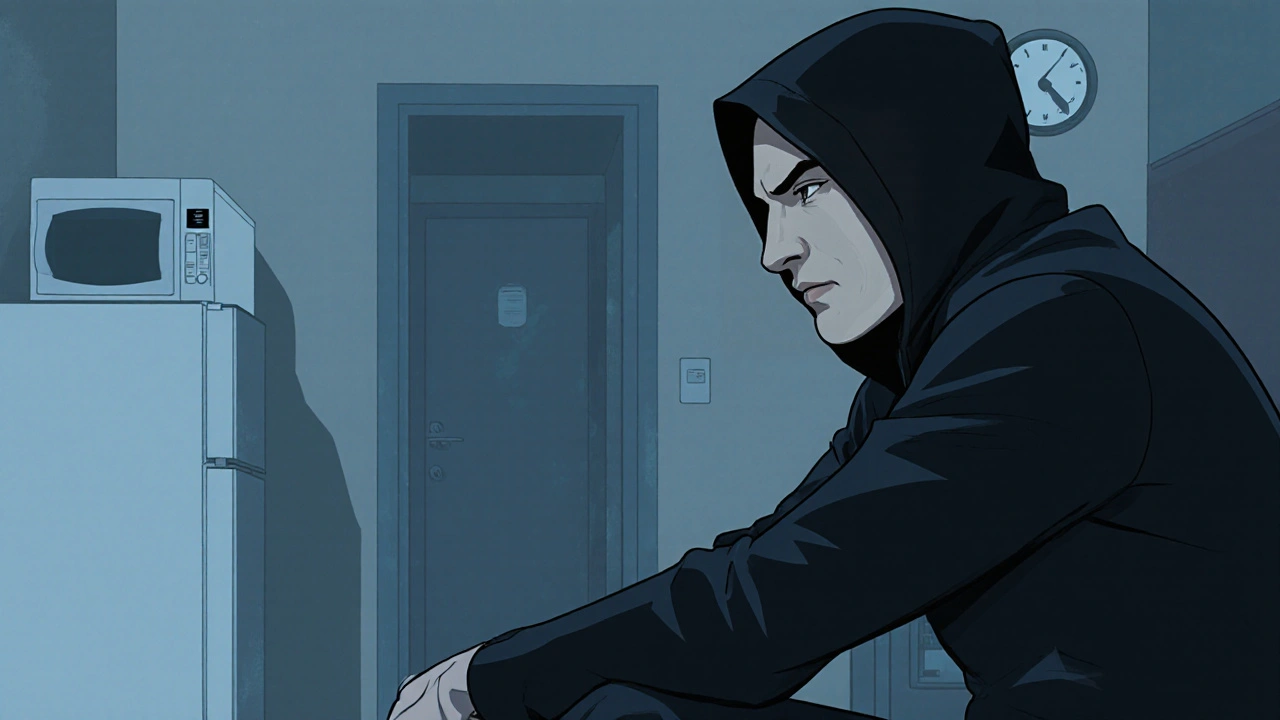David Fincher’s The Killer is not just another hitman movie. It’s a cold, calculated meditation on control, isolation, and the quiet collapse of a man who thinks he’s above emotion.
If you’ve ever sat through a thriller that felt like it was trying too hard to be cool, you’ll know what The Killer avoids. There are no car chases. No explosive showdowns. No last-minute twists. Just a man, a plan, and the weight of every mistake he refuses to admit he made. Directed by David Fincher and starring Michael Fassbender as a nameless, emotionless assassin, this film doesn’t ask you to root for him. It asks you to watch him - closely, silently, uncomfortably.
Fincher’s style has always been about precision. Every frame is locked in. Every sound is placed like a tile in a mosaic. In The Killer, that precision becomes the character. The assassin’s mantra - "Stick to the plan. Trust no one. Forbid empathy." - isn’t just dialogue. It’s the film’s entire architecture. You don’t feel his pain. You don’t cheer his kills. You observe how he moves through the world like a ghost who forgot how to breathe.
How The Killer Works as a Thriller Without Action
Most action thrillers rely on momentum. The Killer works by slowing it down. The assassin doesn’t fight his way out of trouble. He plans his way out. He researches targets. He studies routines. He waits. He watches. He kills. And then he leaves. No drama. No monologues. Just logistics.
There’s a scene where he sits in a hotel room for 20 minutes, staring at a wall, waiting for a signal. No music. No cutaways. Just the hum of a fridge and the ticking of a clock. That’s the whole movie. It’s not boring - it’s intentional. Fincher isn’t trying to entertain you. He’s trying to make you feel the monotony of a life built on detachment.
Michael Fassbender doesn’t act. He exists. His voiceover, dry and mechanical, narrates his process: "My process is purely logistical." He doesn’t explain why he does what he does. He doesn’t need to. The silence between his words tells you everything. When he finally breaks his own rule - when empathy slips in - it’s not dramatic. It’s quiet. And that’s what makes it devastating.
Why Netflix Was the Only Place This Film Could Exist
Think about this: a $150 million budget for a movie where the main character doesn’t speak more than 150 lines. No studio in Hollywood would have greenlit this five years ago. Theaters demand spectacle. Audiences expect payoff. This film gives you none of that.
Netflix didn’t just fund it - they understood it. The Killer was never meant to be a box office smash. It was meant to be a cultural event. And it was. It ranked #1 in 93 countries during its first week on streaming. Over 45 million viewing hours in four days. That’s not just numbers. That’s proof that a global audience is hungry for films that don’t talk down to them.
Netflix’s hybrid release - three weeks in theaters, then streaming - was a smart move. It gave the film awards eligibility while letting the real audience find it on their own terms. You don’t need to leave your couch to feel the tension. You just need to turn off the noise.

The Sound, The Look, The Silence
The Killer looks like a painting that’s been dipped in ice. Colors are muted. Shadows are deep. Everything is sharp, but nothing is warm. Shot on Sony Venice cameras with a 1.85:1 aspect ratio, it feels like you’re watching through a high-end surveillance feed. There’s no glamour. No romance. Just cold reality.
The score by Trent Reznor and Atticus Ross doesn’t build tension. It erases it. There are no swelling strings. No pounding drums. Just ambient pulses, distant echoes, and the occasional beep of a phone. It’s the sound of a mind shutting down. When the assassin finally loses control, the music doesn’t rise. It disappears. And that’s when you realize - he’s not the killer. He’s the one being killed by his own rules.
Tilda Swinton shows up as a mysterious, almost mythic figure who may or may not be real. Her presence isn’t explained. It doesn’t need to be. She’s the embodiment of consequence. The one thing the assassin thought he could avoid.
Who Is This Movie For? And Who Is It Not For?
If you like fast-paced action, you’ll hate The Killer. You’ll call it slow. Pretentious. Boring. And you’re not wrong - if your idea of a thriller is explosions and quips.
If you like films that make you think, that let silence speak louder than dialogue, that trust you to sit with discomfort - then this is one of the best films of the year. It’s not about the plot. It’s about the mood. The rhythm. The weight of every decision.
On Rotten Tomatoes, critics gave it 83%. Audience score? 51%. That gap tells you everything. Fincher fans see a masterpiece. Everyone else sees a long, quiet movie with a guy who doesn’t smile.
On Reddit, one user summed it up: "Fincher doesn’t make movies. He builds experiences. You don’t watch The Killer. You survive it." That’s the truth.

The Killer’s Legacy: A New Blueprint for Adult Thrillers
Before The Killer, studios were shelving mid-budget thrillers. Theaters were full of superhero sequels. The quiet, character-driven stories were vanishing.
Now? Netflix has increased its budget for auteur-driven adult thrillers by 18% in 2024. The Killer didn’t just make money. It proved that audiences will show up for films that demand their attention - not just their clicks.
It’s not a franchise. Fincher says there’s no sequel. And that’s the point. This isn’t a product. It’s a statement. A reminder that cinema can still be about mood, not market share.
As theaters shrink and attention spans fragment, The Killer shows that there’s still space for films that don’t shout. That don’t sell. That just… exist. And if you’re willing to sit still long enough, they’ll speak volumes.
Final Thoughts: Why This Film Matters Now
The Killer isn’t about a hitman. It’s about what happens when you remove all feeling from your life and pretend it doesn’t matter. It’s about the cost of control. The loneliness of perfection.
In a world where everyone is rushing - to post, to buy, to react - Fincher gives us a man who moves in slow motion. Who waits. Who observes. Who doesn’t speak unless he has to.
Maybe that’s why so many people connected with it. Not because they wanted to be assassins. But because they recognized the silence inside themselves.
Is The Killer based on a true story?
No, The Killer is not based on a true story. It’s an adaptation of the French graphic novel series of the same name by Alexis "Matz" Nolent and Luc Jacamon. The film takes the core concept - a detached, methodical assassin - and expands it into a psychological study, but none of the characters or events are real.
Where can I watch The Killer?
The Killer is available exclusively on Netflix. It streamed globally starting November 10, 2023, after a limited theatrical release. You can watch it on Netflix Standard with Ads or Netflix Standard without ads. There are no free or legal streaming options outside of Netflix as of 2025.
Why is The Killer so slow?
The pacing is intentional. David Fincher uses silence and slowness to mirror the assassin’s mindset. Every pause, every glance, every footstep is part of the story. It’s not about action - it’s about control. The slower it feels, the more pressure builds. If you’re used to fast cuts and loud music, it might feel dull. But that’s exactly the point - the assassin’s world has no noise, and neither does the film.
Does Michael Fassbender do his own stunts in The Killer?
Fassbender performed many of his own physical movements, including precise walking, aiming, and reaction shots. However, the more dangerous stunts - like the car crash sequence and the final fight - were handled by professional stunt performers. Fincher prioritized realism over spectacle, so even the stunt work was kept minimal and grounded.
Is there a sequel to The Killer?
No, there is no sequel planned. David Fincher has stated in interviews that The Killer is a standalone story. The ending is final, and the character’s arc is complete. While the graphic novel series has multiple volumes, the film adapts only the first arc, and Fincher chose not to continue it.
What’s the meaning behind the assassin’s mantra?
"Stick to the plan. Trust no one. Forbid empathy." is the assassin’s code to survive. It’s his shield against guilt, connection, and chaos. But the film shows that even the strongest shields crack. When he breaks his own rule - by letting emotion in - it’s not because he’s weak. It’s because he’s human. The mantra isn’t his strength. It’s his prison.
How did The Killer perform on Netflix compared to other films?
The Killer was one of Netflix’s biggest hits of late 2023. It ranked #1 in 93 countries in its first week and generated 45.5 million viewing hours in just four days. That puts it among the top 10 most-watched non-English and non-franchise films on the platform that year. It outperformed many big-budget action films and proved that a slow-burn, director-driven thriller can find a massive global audience on streaming.
Is The Killer worth watching if I’m not a David Fincher fan?
If you’re not drawn to slow, atmospheric films, you probably won’t like it. But if you’re open to something different - a thriller that doesn’t need explosions to keep you hooked - then yes. It’s one of the most uniquely crafted films of the last decade. Even if you don’t love it, you’ll remember it. And that’s rare.

